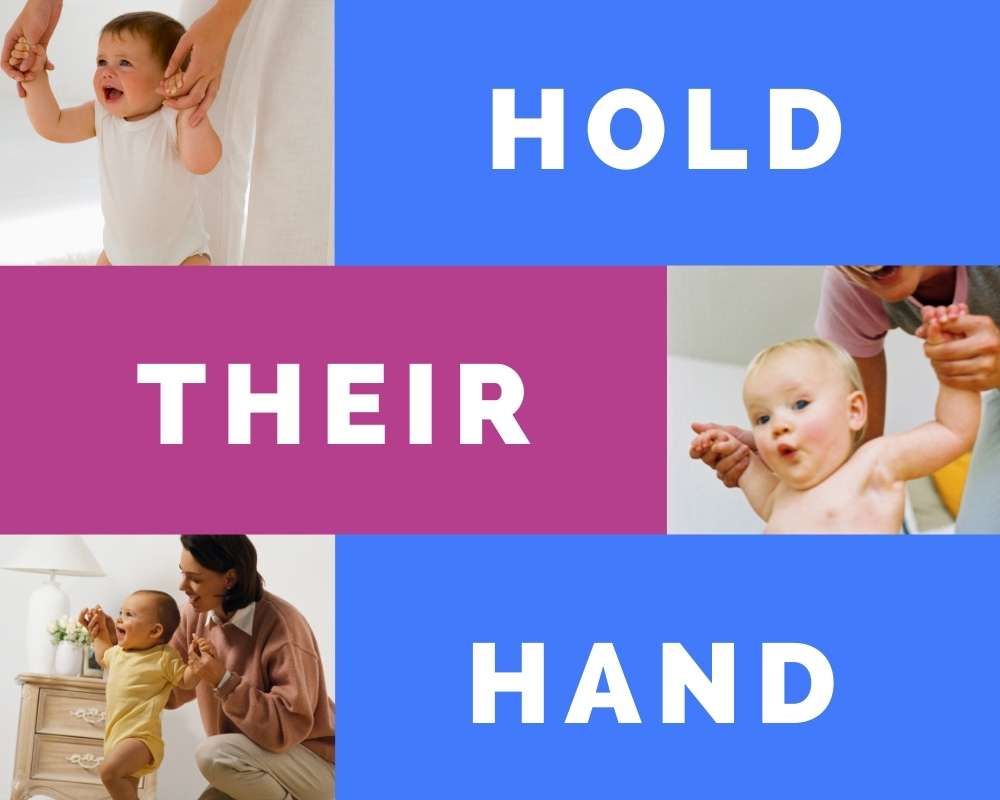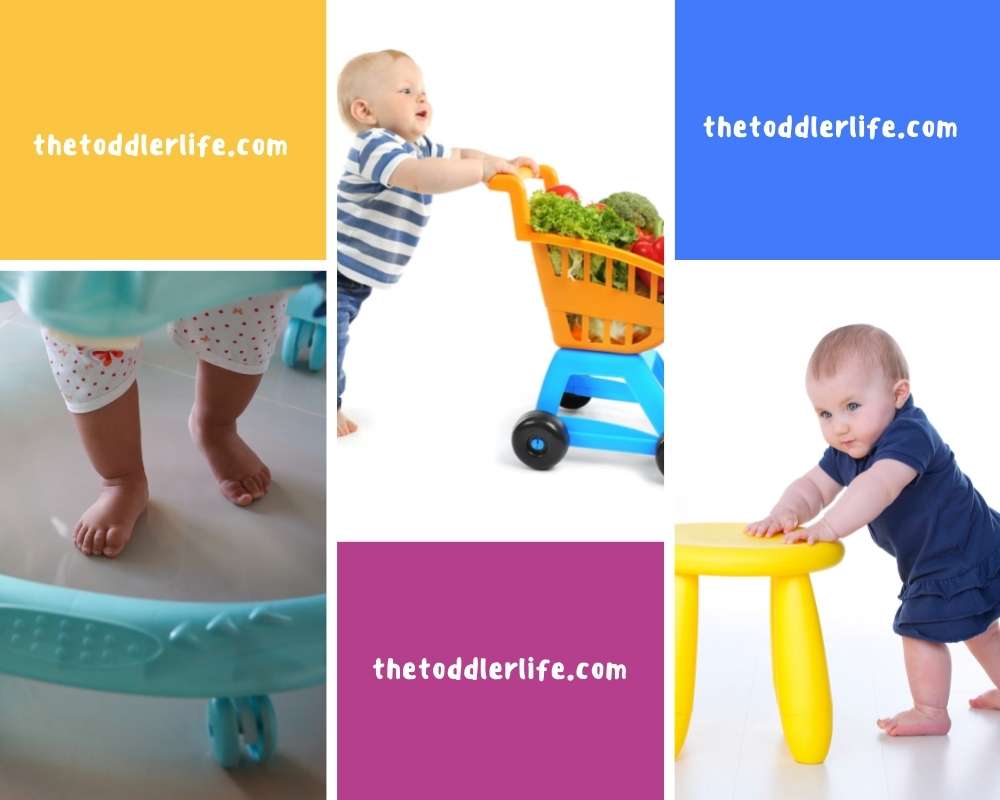It’s such an exciting time when your baby starts growing up. From their first smile, their first laugh and their first time standing up by themselves, there are so many exciting milestones along the way. One of the most exciting developmental milestones, however, is when your baby is ready to take their first independent steps.
You don’t have to rush out and buy baby shoes straight away, but you might want to start thinking about how to to baby proof your home. This is an exciting milestone in child development but depends on each childs muscle strength.

So, how can you help your baby take their first steps? In this article, we’ll take a look at some helpful tips for making your baby’s first steps a success along with some signs to look out for that may indicate your baby is ready to start walking.
When Do Babies Usually Start Walking?
Walking is possibly the biggest achievement for your baby. It’s the first sign that your baby is entering the toddler stage the first real step towards your baby growing up into a child. Some babies will start walking on their own earlier than others, that’s inevitable.
Some infants can start walking before their first birthday, however, most babies will take their first steps after this date. On average, babies tend to start walking independently when they’re around 14 months old. Many babies will take their very first step once they’ve managed to pull themselves up to a standing position at around 9-10 months of age. This is the normal range for healthy children.
Those very first attempt at steps tend to be short lived. They may attempt a step or two and then fall. Or they may attempt steps while holding onto something such as the couch or using baby walkers. However, most of the time, they won’t start taking multiple steps on their own until after their first birthday. This is usually when their leg muscles have developed sufficiently enough to keep them upright.
Signs Your Baby Might Start Walking Soon
A good sign that your baby is ready to start walking is when they’ve mastered crawling, and their finally pulling themselves up into a standing position on their own. You’ll notice your baby starts to become stronger over time and they’ll be able to stand for much longer periods with better balance. This is a good sign that walking may be imminent.
If your little bundle of joy is starting to stay steps by holding onto something, they will most likely be ready to let go and go it alone soon. Below is a list of the stages that your baby will take when getting ready to start walking:
- They have mastered crawling
- They have started to pull themselves forward with their arms
- They have started sliding themselves along on their bottom
- They may be pulling themselves along the floor on their belly
- They can pull themselves into a standing position
- They can take some small steps while holding onto something
Once you’ve recognized that your baby may be ready to start walking, there are some things that you can do to help make those first steps a success. Let’s take a look at some of the things you can do to help them along.
Tips on How to Help Your Baby Walk
Most of the time, your baby will attempt to start walking by themselves. However, you can encourage them to take those first steps in the following ways:
1. Hold Their Hand

One of the best ways that you can encourage your baby to start walking is by holding their hand. Allow them to pull themselves up into a standing position and then assist them with their balance by holding their hand. Eventually, you can just lightly hold their hand for assistance until they’re strong enough to start doing it alone.
2. Leave Something Out of Reach
You can encourage your baby to start walking by leaving something such as a fun toy slightly out of reach. When your baby pulls themselves up to stand, they may be tempted to try new ways of getting to something that’s out of reach. This could encourage them to try taking steps to reach their toy.
3. Assist With Cruise Control
If your baby can pull themselves into a standing position but seem unsure about their next move, you can help them by creating a line of stable furniture for them to hold onto. This will help to keep them steady as they attempt to take those first steps. If you are using furniture to help them steady themselves, make sure they are babyproof first and ensure that they are completely stable on the floor and not prone to tipping over.
4. Get a Push Toy

Push toys, like baby walkers, are great for encourage walking. Something like a small shopping cart can help to give them the support they need to start taking those first steps. It allows your child to stay balanced when taking steps and also helps to boost their confidence. Try to find sturdy toys that aren’t likely to tip over easily and choose ones that have a bar or handle that your child can easily hold on to.
5. Avoid Shoes Inside
When your baby is indoors, keep them barefoot if you can. This helps to build their muscle tone in the feet and ankles and can help the arches of the feet to develop. This, in turn, can assist with balance and coordination and can make those first steps much easier.
6. Praise Your Baby
If your baby starts making the moves towards taking steps on their own, make sure your praise every little achievement. Be on hand to assist them whenever needed and then give them lots of smiles and praise whenever they manage to achieve anything on their own. Praise is an important part of child development and will help improve their walking skills.
7. Comfort Their Falls
Falls are inevitable and you want to make sure your baby doesn’t become discouraged when they fall. Try to comfort their falls as much as possible and be there to console them if they cry a little. Ensure you have baby-proofed so that the area is safe for your baby to start exploring and to prevent any accidents.
Final Thoughts
Most of the time, your baby will be curious enough to start trying to walk on their own. However, if you want to speed up the walking process and help your baby along, use the above tips to boost their confidence and get them going. Dont worry if your child is a late walker. Each baby follows their own path on physical development. Babies motor skills develop at different speeds so you’ll have plenty of time before you need to buy any baby shoes.

